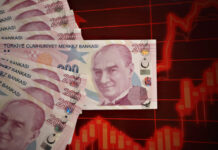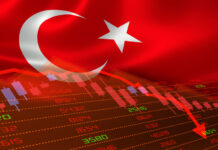While the Corona Virus effect is forcing many countries’ economies to dive globally, Iraq is not safe as well. The oil prices fell to $26 per barrel, which is the worst and lowest since 2003. The sharp fall is a result of a hit to global oil demand from the pandemic and price war involving major oil players, Russia and Saudi Arabia. The new development is not good news to Iraq, as the country heavily relies on oil revenues, which surpasses 90%.
According to the International Energy Agency head Mr. Fatih Birol, the economic pressure is expected to get worse in the coming weeks. The discouraging news is coming when the company owned by Barzani (Korek) top officials is accused of misappropriating funds and awaiting the outcome of the claim filed by France’s Orange and logistics firm Agility from Kuwait.
Prices of energy and gas going low may favor the consumer as the spending rate sounds friendly, but no clear whether they will go out to spend that money soon as a result of minimal movements.
Economic Impact
For this crisis to end, it will depend on the efforts put to control the outbreak effectively. The negative economic effects of the Corona pandemic, although weighty, will be temporary. The worst thing to happen is the closure of small businesses such as shops, restaurants, salons and others for lack of customer flow. If people do not go to the city, it means these businesses will either make no money or very little, which may severely affect them for the long-term experience.
While other countries are putting measures to boost the most affected businesses, the Iraq economy is already struggling. The oil prices experiencing a huge cut mean the country’s net income would drop 65% when compared to the previous year, incurring a monthly deficit of $4 billion just to cover the salaries alone and keep the government function running. The country is in crisis and not sure whether it is easy to break beyond $2.5 billion per month, according to Birol, when speaking to Iraqi officials during a moment to seek urgent solutions.
The Iraq government had hoped the oil price to hit $30 per barrel, but according to the current sharp dive, the situation is bullish. The country is moving from one problem to another, as the government was in a few weeks was dealing with ways to calm the constant protests. As a way to alleviate the situation, the government had to increase salaries from $36 billion to $47 billion after absorbing half a million new employees. So, the government is spending 75% of the money to take care of salaries, capital investments and other costs.
Normally, the Iraq government employs about 4 million people, pensions going to 3 million while social welfare is given to 1 million.
Government Plan
According to Iraq’s central bank governor Mr. Allaq, the country will be able to deal with salaries and external debt while focusing on how to trim services that economically inefficient and subsidies.
Also, the other option the government has is to recapture trillions of dinars stashed for years of surplus funds in state-owned bank accounts. They plan to issue bonds to the public and reschedule any internal debt. There is also ongoing consultation with the International Monetary Fund (IMF) though things may not be positive as no passed budget yet plus any formation of a new government.
After Corona is gone and oil prices stabilize, it will take time for Iraq to get back to normalcy.




































































